Here's how HCM Technologies can enable learning & culture in times of crisis
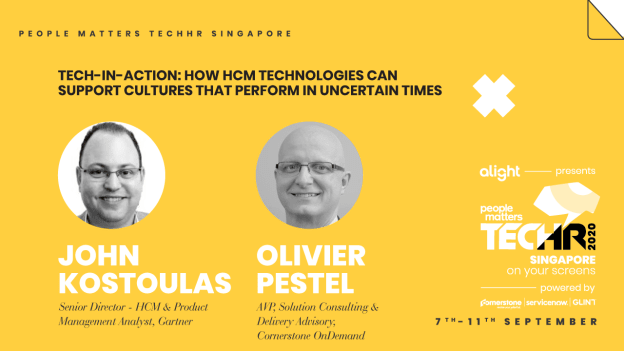
It is no longer news that organizations who are agile are better placed to face the current global health crisis or a crisis that could emerge in the future. The organizations who have quickly responded and redefined their approach, policies, and culture to adjust to the changing needs of the new reality of work have a better chance to bounce back from the crisis. In his session at People Matters TechHR 2020, Olivier Pestel, AVP, Solution Consulting & Delivery Advisory, Cornerstone OnDemand shared to manage teams effectively and ensure business continuity, organizations must communicate effectively, connect and motivate employees, and continue to train employees.
The three themes which have become more critical than ever before can be delivered more effectively with the use of technology, especially in the context of a new remote working environment. Tech is no longer nice to have but needs to have elements for organizations. In fact it has become a core pillar to determine an organization's success in the short term and long term. Especially as changes accelerated by COVID-19 disrupts the job market and nudges the leaders to invest increasingly in skilling and reskilling, tech becomes key. To ensure continuous learning and development of the distributed workforce, talent leaders have to leverage technology in the best possible way.
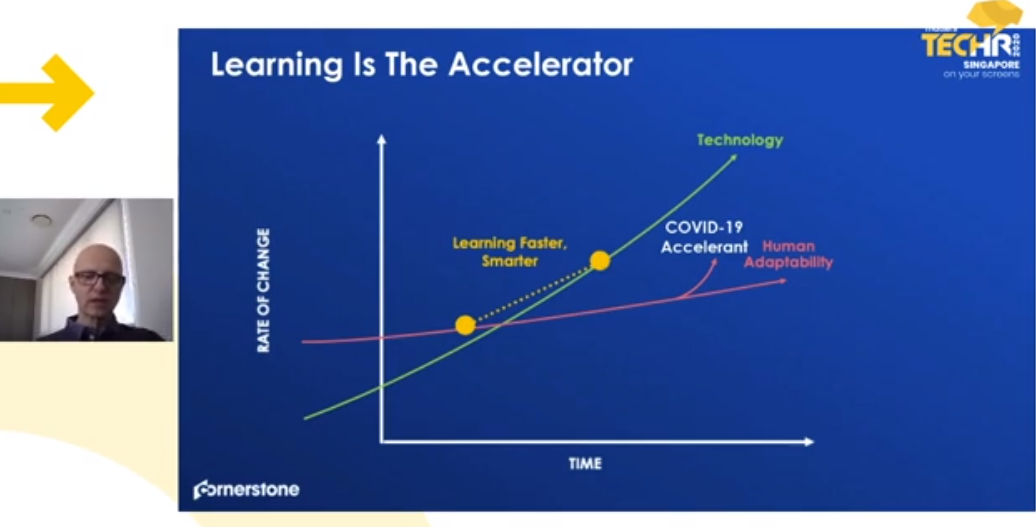
Technology helps accelerate the learning curve more effectively
From assessing required job roles to mapping the competencies and skills required to carry out those roles to disseminating learning initiatives, technology enables organizations to deliver learning in a much more effective way. Pestel shared that you can implement learning initiatives without technology as well but then how will you enhance scalability and reach?
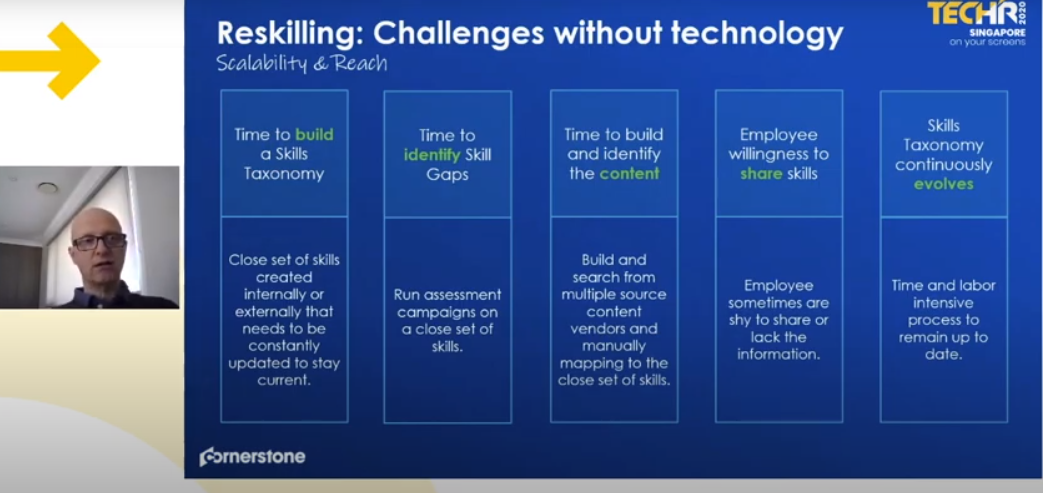
A lot of time can be wasted in indetifying skill gaps, building content, and gathering employee pulse. But as talentc leaders introduce tech they get better insights and data to maximize the learning outcomes. 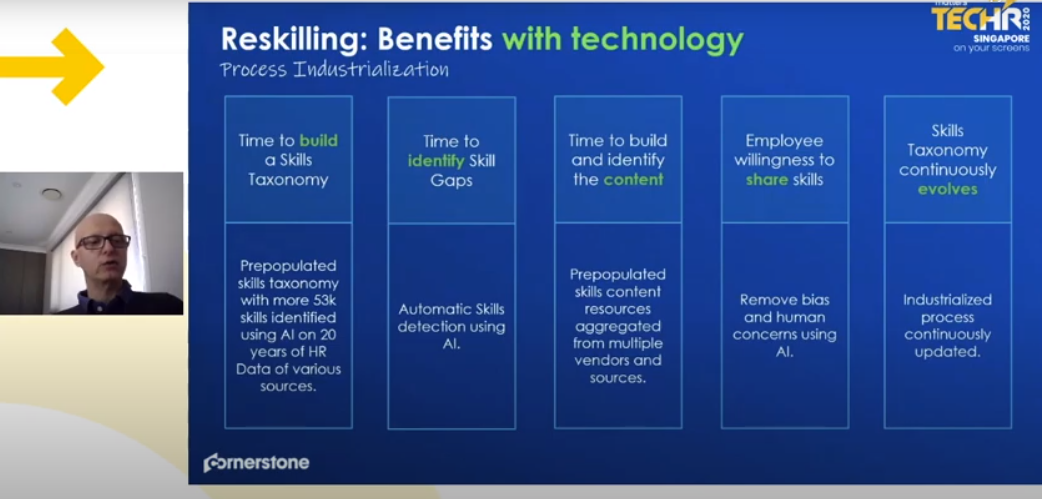
Leveraging tech to support Cultures that perform in uncertain times
In a session at People Matters TechHR 2020, John Kostoulas, Senior Director - HCM & Product Management Analyst, Gartner shared that the three aspects of a high performing culture are: Knowledge, Mindset, and Behavior.
Kostoulas further said that it is important how organizations measure and understand their culture, how employees apply culture in day-to-day work, and leaders reinforce culture through processes and systems. HCM technologies can be quickly cascaded in the organizations at all levels and take care of all of these areas of work. Here’s how they can help:
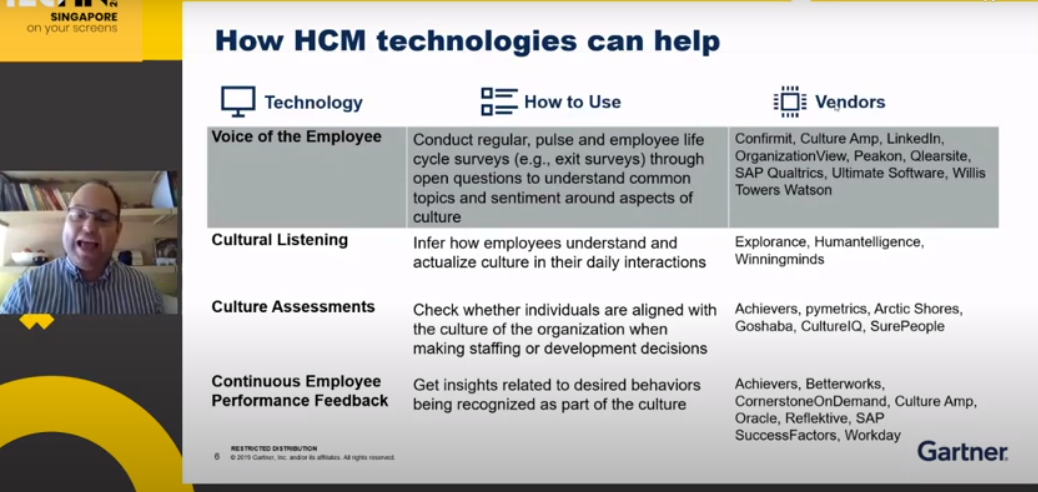
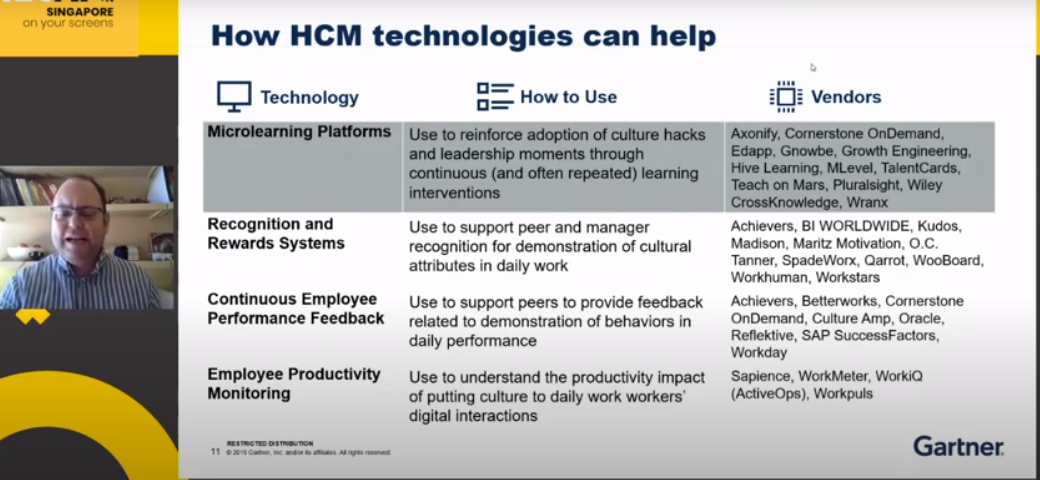
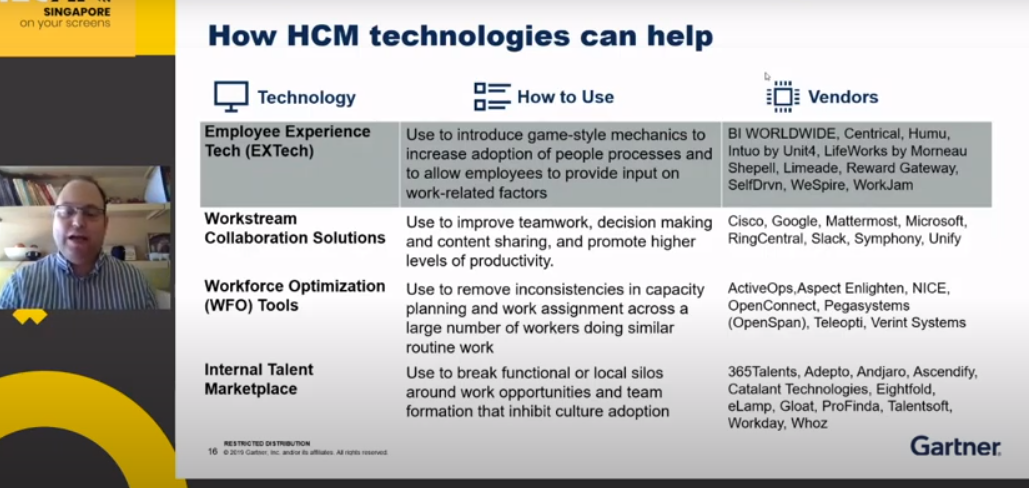
To make best use of these HCM technologies HR leaders have to drive the change transformation and enable organizational intelligence of employees’ experience with culture. This can be driven through cultural assessments, and continuous feedback tools. Furthermore to empower employees to apply the culture, enable micro learning, rewards and recognition and employee productivity monitoring tools. In addition to that, with employee experience technology, collaboration, and internal talent marketplace, talent leaders cna remove systemic barriers in processes and technologies.

















